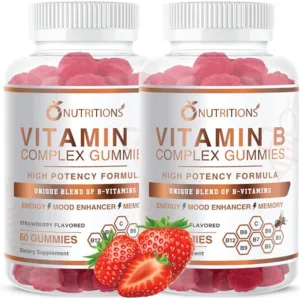
Endometriosis is a common and often painful condition that affects many women worldwide. If you are living with endometriosis, you know firsthand the challenges it can bring to your daily life. The good news is that there are natural remedies for endometriosis that can help provide relief from the symptoms and improve your overall well-being. In this article, we will explore various effective solutions for managing endometriosis and ways you can engage in self-care at home.[1][2][3][4][5]
Understanding Endometriosis
Before we dive into the natural remedies, it’s important to have a clear understanding of what endometriosis is. Endometriosis occurs when the tissue that normally lines the uterus, called the endometrium, grows outside the uterus. This abnormal growth can cause inflammation, pain, and the formation of scar tissue. Common symptoms of endometriosis include pelvic pain, painful periods, infertility, and gastrointestinal disturbances.
Seeking Diagnosis for Endometriosis
If you suspect endometriosis, consult a healthcare provider for an accurate diagnosis. Diagnostic methods may include a pelvic exam, ultrasound, or laparoscopy. Endometriosis, a complex and often misunderstood condition, affects millions globally, with potential links to hormonal imbalances, genetic factors, or immune system dysfunction.
When endometrial tissue extends beyond the uterus, it can attach to organs in the pelvic region, leading to varying symptoms. These symptoms, from pelvic pain to infertility and gastrointestinal issues, necessitate early medical attention for diagnosis and intervention. Proper care and support can help manage symptoms, enhancing the overall quality of life for women with endometriosis.
Addressing Endometriosis
One of the most common symptoms of endometriosis is pelvic pain. This pain can range from mild discomfort to debilitating cramps that interfere with daily activities. The pain may be constant or occur only during menstruation. It can also be felt during sexual intercourse or bowel movements.
In addition to pelvic pain, many women with endometriosis experience painful periods, also known as dysmenorrhea. These periods can be accompanied by heavy bleeding and clotting, making it difficult to go about daily life. The pain and heavy bleeding can lead to fatigue and a decreased quality of life.
Infertility is another significant concern for women with endometriosis. The abnormal growth of endometrial tissue can interfere with the function of the ovaries, fallopian tubes, and uterus, making it difficult for a woman to conceive. In fact, endometriosis is one of the leading causes of infertility in women.
Gastrointestinal disturbances are also commonly reported by women with endometriosis. These can include bloating, constipation, diarrhea, and even nausea. The abnormal growth of endometrial tissue can irritate the surrounding organs, leading to digestive issues that can further impact a woman’s quality of life.
Given the wide range of symptoms and the potential impact on fertility, it is crucial for women to seek medical attention if they suspect they have endometriosis. Early diagnosis and intervention can help manage the symptoms and improve the overall quality of life for women with this condition.
Endometriosis is a complex condition that affects many aspects of a woman’s life. From pelvic pain to infertility, the symptoms can be challenging to manage. However, with proper medical care and support, women with endometriosis can find relief and lead fulfilling lives.
The Role of Diet in Managing Endometriosis
In order to control the symptoms of endometriosis, nutrition is very important. An inflammatory and painful illness known as endometriosis occurs when tissue that normally coats the lining of the uterus develops outside of it. You can lessen pain and inflammation by including foods high in anti-inflammatory compounds in your diet.
Nourishing Your Body: Anti-Inflammatory Foods for Endometriosis
Omega-3 fatty acid-rich fatty fish is one type of anti-inflammatory meal that may help control endometriosis symptoms. It has been demonstrated that omega-3 fatty acids contain anti-inflammatory qualities and can help lessen discomfort. Fish that are high in fat content include mackerel and salmon.
Green leafy vegetables, such as spinach and kale, are also excellent complements to a diet that is friendly to endometriosis. These veggies are a great source of antioxidants and nutrients that can boost general health and reduce inflammation.
Colorful fruits and vegetables, particularly berries and tomatoes, are rich in antioxidants and can help combat oxidative stress in the body. Oxidative stress is believed to play a role in the development and progression of endometriosis.
Turmeric, a spice with powerful anti-inflammatory properties, is another great addition to an endometriosis diet. Curcumin, the active compound in turmeric, has been shown to have anti-inflammatory effects and may help reduce pain associated with endometriosis.
On the other hand, certain foods can exacerbate the symptoms of endometriosis and should be limited or avoided. Processed foods high in saturated fats can increase inflammation in the body and worsen endometriosis symptoms. It’s best to opt for whole, unprocessed foods whenever possible.
Mindful Choices: Foods to Limit or Avoid for Endometriosis Relief
Caffeine and alcohol can also have negative effects on endometriosis symptoms. Both substances can increase inflammation and may contribute to hormonal imbalances. It’s important to limit your intake of caffeinated beverages and alcoholic drinks if you have endometriosis.
Refined sugars, found in many processed foods and sugary treats, can also contribute to inflammation in the body. It’s best to choose natural sweeteners like honey or maple syrup, and to limit your consumption of sugary foods and beverages.
Dairy products, while a good source of calcium, can increase inflammation in some individuals. If you find that dairy worsens your endometriosis symptoms, it may be beneficial to limit your intake or try dairy alternatives like almond milk or coconut milk.
Maintaining a balanced and nutritious diet can not only help manage endometriosis symptoms but also improve your overall health and well-being. In addition to incorporating anti-inflammatory foods, it’s important to eat a variety of nutrient-dense foods to ensure you’re getting all the vitamins and minerals your body needs.
Consider incorporating these dietary changes into your daily routine and consult with a registered dietitian for personalized guidance. They can help you create a meal plan that meets your specific nutritional needs and supports your overall health while managing endometriosis.[6][7][8][9]
Natural Remedies for Endometriosis
In addition to dietary changes, herbal remedies can provide natural relief for endometriosis symptoms. Traditional Chinese Medicine offers various herbal formulations known to alleviate pelvic pain and regulate menstrual cycles. Western Herbal Medicine also offers a wide range of herbal remedies that can help reduce inflammation and improve hormonal balance.
One popular herbal remedy in Traditional Chinese Medicine is Dong Quai. This herb has been used for centuries to treat gynecological conditions, including endometriosis. Dong Quai is believed to help regulate estrogen levels in the body, which can help reduce the growth of endometrial tissue outside the uterus. It is often used in combination with other herbs, such as Chaste Tree Berry and White Peony Root, to enhance its effectiveness.
Another herb commonly used in Western Herbal Medicine for endometriosis is Turmeric. Turmeric contains a compound called curcumin, which has powerful anti-inflammatory properties. Inflammation is a key factor in the development and progression of endometriosis, so reducing inflammation can help alleviate symptoms. Turmeric can be consumed in the form of capsules or added to meals as a spice.
When considering herbal remedies, it is important to consult with a qualified healthcare professional who specializes in herbal medicine. They can guide you in selecting the right herbs and formulations for your specific needs. A healthcare professional will take into account your medical history, current medications, and any other health conditions you may have to ensure that the herbal remedies are safe and effective for you.
Herbal remedies can be a valuable addition to the treatment plan for endometriosis. They can help alleviate symptoms, reduce inflammation, and improve hormonal balance. However, it is crucial to consult with a qualified healthcare professional before starting any herbal remedies to ensure their safety and effectiveness for your specific condition.
Lifestyle Changes for Endometriosis Relief
Endometriosis, a widespread chronic condition affecting millions of women globally, involves the abnormal growth of endometrial tissue outside the uterus, leading to pain and inflammation. While medical treatments exist, incorporating lifestyle changes can enhance symptom management and overall well-being.
1. Exercise Benefits:
Regular exercise, particularly low-impact activities like yoga, Pilates, and swimming, has proven benefits for those with endometriosis. It not only reduces pelvic pain but also improves physical and mental well-being. These activities strengthen pelvic muscles, enhance flexibility, and promote relaxation. Adjust your routine based on your body’s signals to avoid overexertion.
2. Stress Management:
Chronic stress exacerbates inflammation and pain in endometriosis. Integrating stress management techniques, such as deep breathing, meditation, and mindfulness, into your daily routine can help calm the mind, reduce anxiety, and enhance overall well-being.
3. Healthy Dietary Choices:
While there’s no specific “endometriosis diet,” maintaining a balanced and nutritious eating plan supports overall health. Include foods rich in antioxidants, omega-3 fatty acids, and fiber to reduce inflammation and balance hormones. Some individuals may benefit from minimizing processed foods, caffeine, and alcohol.
Every person’s experience with endometriosis is unique, requiring a personalized treatment plan. Collaborate closely with your healthcare provider to incorporate lifestyle changes, medications, and appropriate interventions tailored to your specific needs.
Lifestyle changes are valuable additions to managing endometriosis. Regular exercise, stress management, and a healthy diet contribute to symptom reduction and an improved quality of life. Consult with your healthcare provider for the most effective and personalized approach to address your specific needs.[10][11]
Enhancing Endometriosis Management with Natural Supplements
In addition to dietary adjustments, herbal remedies, and lifestyle changes, specific natural supplements can provide valuable support for women managing endometriosis. These supplements, encompassing essential vitamins, minerals, and probiotics, contribute to hormonal balance and overall well-being.
Key Supplements for Endometriosis Management
1. Vitamin Support:
– Vitamin B Complex: Comprising B1, B2, B3, B5, B6, B7, B9, and B12, this group of vitamins plays a pivotal role in hormone metabolism and inflammation reduction. Including Vitamin B complex in your daily routine may alleviate pain and discomfort associated with endometriosis.
– Vitamin D: Essential for immune function and inflammation reduction, Vitamin D supplementation is particularly beneficial for women with endometriosis, often exhibiting lower levels of this vitamin. Enhancing Vitamin D levels can improve symptoms and overall well-being.
2. Mineral Relief:
– Magnesium: Known for alleviating muscle cramps and reducing pain, magnesium is a valuable mineral for women with endometriosis. Integrating magnesium into your daily routine may lead to a decrease in the severity and frequency of common symptoms.
3. Gut Health Support:
– Probiotics and Digestive Enzymes: Beneficial for maintaining gut health and optimal digestion, these supplements can help alleviate symptoms such as bloating, constipation, and diarrhea. Improving gut health contributes to overall well-being and a reduction in endometriosis symptoms.
It’s essential to consult with a healthcare professional before incorporating these supplements, ensuring the right dosage and compatibility with any existing medications. Personalized advice based on individual needs and medical history can optimize the effectiveness of these natural approaches.
A Holistic Approach to Endometriosis Management
Living with endometriosis necessitates a holistic approach that extends beyond supplements. Lifestyle changes, including regular exercise, stress management, and adequate sleep, are integral components of a comprehensive treatment plan. Every woman’s experience with endometriosis is unique, emphasizing the importance of collaborating closely with healthcare providers to tailor a plan that addresses specific needs and goals.
As you explore natural remedies for endometriosis, tracking symptoms and treatment outcomes becomes crucial. The CareClinic App offers a user-friendly platform to monitor dietary changes, exercise routines, stress management techniques, and supplement intake. Utilize features like the symptom tracker and medication reminders to gain insights into what works best for your body, empowering you to personalize your journey toward relief and well-being. Install the CareClinic App today and take control of your endometriosis management with a personalized and informed approach.[12][13]
References Beyond the physical symptoms, endometriosis can affect your intimate relationships too. Some women find their libido changes when dealing with chronic pain. If you’re looking for a ristela alternative that works naturally with your body, there are options that might help restore your energy and interest.
- “Natural Ways to Reduce Endometriosis Symptoms | AANMC”. https://aanmc.org/naturopathic-medicine/endometriosis-self-care-tips/
- “Endometriosis: Home Remedies, Diet Tips, & Lifestyle Changes”. https://www.emedihealth.com/womens-health/reproductive-health/home-remedies-endometriosis
- “Natural Remedies for Endometriosis – Amchara Detox Health Retreats”. https://amchara.com/medical-conditions/natural-remedies-for-endometriosis/
- “Need Help With Endometriosis Symptoms? Try These Home Remedies, Supplements And Lifestyle Changes | Women's Health articles | Family Health center | SteadyHealth.com”. https://www.steadyhealth.com/articles/need-help-with-endometriosis-symptoms-try-these-home-remedies-supplements-and-lifestyle-changes
- “15 Natural Remedies For Endometriosis Relief | Nourish”. https://www.usenourish.com/blog/natural-remedies-for-endometriosis
- “Endometriosis and Diet: Foods to Avoid and Foods to Embrace”. https://www.artfertilityclinics.com/in/en/art-blog/endometriosis-and-diet-foods
- “Take Control of Endometriosis Naturally: A Guide to Anti-Inflammatory Eating: Caceres Specialized Gynecology: Gynecologists”. https://www.caceresgyn.com/blog/take-control-of-endometriosis-naturally-a-guide-to-anti-inflammatory-eating
- “Can Diet Improve Symptoms of Endometriosis? | Banner”. https://www.bannerhealth.com/healthcareblog/better-me/the-10-foods-to-eat-and-to-avoid-when-you-have-endometriosis
- “Dietary Interventions for Endometriosis: What You Need to Know”. https://pelvicpainrehab.com/blog/dietary-interventions-for-endometriosis-what-you-need-to-know/
- “Efficacy and Safety of Chinese Herbal Medicine for Endometriosis Associated Pain – PubMed”. https://pubmed.ncbi.nlm.nih.gov/35475975/
- “Add-on effect of curcumin to dienogest in patients with endometriosis: a randomized, double-blind, controlled trial – PubMed”. https://pubmed.ncbi.nlm.nih.gov/40220411/
- “The Importance of Diet in the Treatment of Endometriosis”. https://www.mdpi.com/2673-4184/4/4/34
- “4 Key Supplements For Endometriosis – BlackDoctor.org”. https://blackdoctor.org/4-key-supplements-for-endometriosis/






